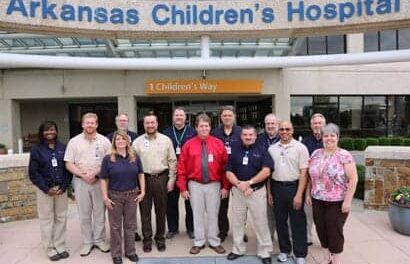From a field of more than 200 entries, AAMI’s Technology Management Council (TMC) has selected three budding healthcare technology professionals as the winners of AAMI’s second annual high school essay contest. As part of this competition, students were asked to describe a healthcare technology of the future and how it would improve patient care.
“I’d like to congratulate the winners of this year’s high school essay contest,” saya TMC Chair Steve Yelton, a healthcare technology management professor at Cincinnati State Technical and Community College. “As an educator, it’s inspiring to see young people take an interest in improving the future of healthcare technology—especially when they’ve been touched by personal experiences that contributed to their interest in the field.”
When evaluating the ideas submitted by students, members of the TMC were not considering whether they might be products in development at leading manufacturers. Rather, TMC members were assessing the creativity of the students.
Improving Communication for People with Autism
The TMC awarded top honors and a $500 gift card to Elma Kotapuri, who recently graduated from Danville Area Senior High School in Pa. Kotapuri’s winning essay focused on a communication device with customizable software for people with autism.
Kotapuri, who has wanted to be a clinical engineer since she was 5 years old, is preparing to start her freshman year at Wright State University in Dayton, Ohio, where she will be majoring in biomedical engineering. This award marks Kotapuri’s second turn in the AAMI spotlight. She made a name for herself when, at the age of 17, she attended the AAMI 2016 Conference & Expo.
Read her winning essay here.
Reducing the Time Needed to Diagnose Brain Injuries
Second place was awarded to Alliyah Rumbolt-Lemond, a rising senior at North Shore Country Day School in Winnetka, Ill., who received a $300 gift card. Her essay described a handheld device that paramedics and other first responders could use to perform CT scans and x-rays, cutting down the time required to diagnose strokes and other traumatic brain injuries.
Read Rumbolt-Lemond’s essay here.
Targeting Infectious Disease
Lilly McCormick, a rising sophomore at Elizabeth Seton High School in Bladensburg, Md., received third prize and a $200 gift card. McCormick’s essay outlined an approach for killing disease-causing organisms, such as bacteria, viruses, and parasites, by targeting their DNA. Read McCormick’s essay here.





